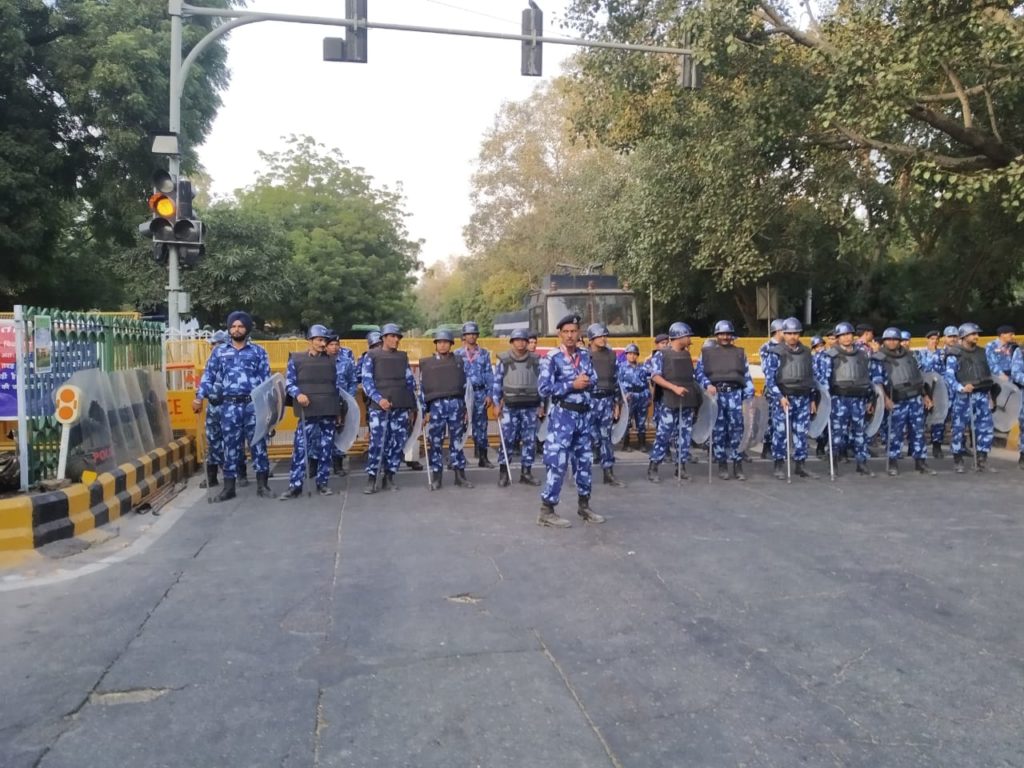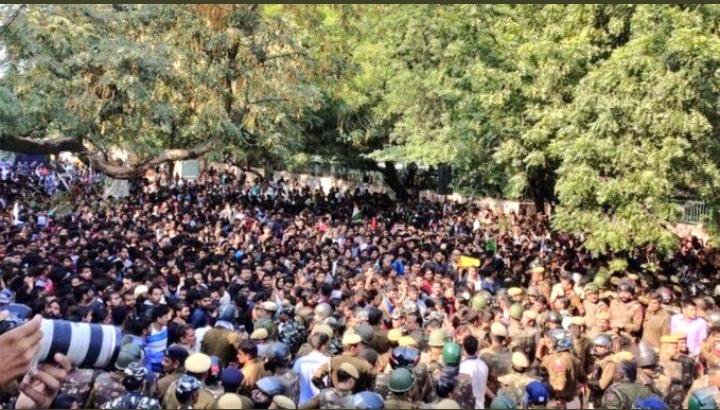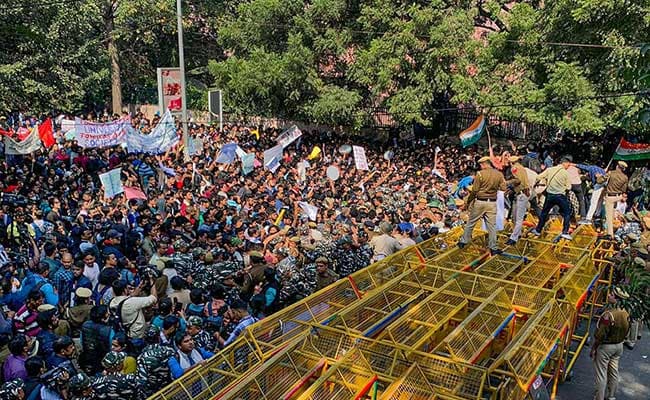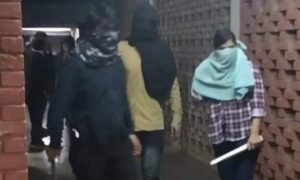
JNU students’ protest goes beyond campus, brings NCR traffic to a halt
The capital city of India, New Delhi came to a halt when hundreds of students of Jawaharlal Nehru University (JNU), clashed with the Police on Monday, November 18, 2019, during their protest march towards Parliament.
The students were carrying out the march to Parliament against the new hostel manual over fee hike. This is despite Section 144 of Criminal Procedure Code (CrPC) of 1973 being imposed in the capital city.

Section 144 authorises the Executive Magistrate of any State or territory to issue an order to prohibit the assembly of four or more people in an area. According to the law, every member of such ‘unlawful assembly’ can be booked for engaging in rioting.
The protest march gains significance as it coincides with the first day of the Winter Session of Parliament.
What happened during the protest?
Students marching to Parliament were stopped by Police at Safdarjung Tomb. They shouted slogans and carried banners which read, “Save public education”, “Fees must fall” and “Ensure affordable hostels for all.”
When students refused to move back and clear the road, the Police had to resort to Baton Charge (‘Lathicharge’ in Hindi) to stop the students. The President of JNUSU – Aishe Ghosh and 70 other protestors have been detained by Police. To ensure peace in the city, 10 companies of Police were deployed, with each company comprising of 70-80 personnel.

The commuters near Safdarjung Tomb were severely affected due to blockage of roads. Vehicles on Nelson Mandela Marg, Aurobindo Marg and Baba Gang Nath Marg were moving at a very slow pace. Traffic was also been affected several areas of Delhi including Moti Bagh, Hyatt Hotel, AIIMS Safdarjung Road and Aurobindo Marg.
As a security measure, the entry and exit at Delhi Metro Rail Corporation (DMRC) Stations have been temporarily closed.
DMRC has issued a travel advisory on twitter, which read, “As advised by Delhi Police, trains are not halting at Udyog Bhawan and Patel Chowk. Exit/Entry Gates for Udyog Bhawan, Patel Chowk and Central Secretariat have been closed temporarily.”
Delhi Metro Rail Corporation: As advised by Delhi Police, trains are not halting at Udyog Bhawan and Patel Chowk. Exit/Entry Gates for Udyog Bhawan, Patel Chowk and Central Secretariat have been closed temporarily. #jnuprotest pic.twitter.com/fZjgq5cf1F
— TheViralLines News (@theViralLines) November 18, 2019
What did the JNUSU say?
The JNU Students’ Union (JNUSU) said in a statement, “The police used brutal force to disrupt our peaceful march and several students have been injured. Many students, including the office bearers, have been detained.”
JNUSU wants itself and JNU Teachers’ Association (JNUTA) to be treated a stakeholder. At the same time, JNUSU wants the Vice Chancellor (VC) – M. Jagadesh Kumar to be removed as they believe he has completely mismanaged the JNU. In their media statement, they also criticised the presence of Police and barricading outside the JNU Campus in South Delhi.
JNUSU said in a tweet, “When your policies kill affordable education, you tend to be scared of a peaceful student march We want immediate release of our detained friends and comrades. We want to VC to come and talk to us. We want complete rollback of fee hike.”
Besides, the women protestors also said that there were no women police at site. They complained they were molested by male cops.
Anther tweet read, “Women students reported that CRPF and @DelhiPolice tore clothes, beat them up, molested them. No women cops in the bus! #JNUProtests.”
What is the matter?
As per the new manual, approved by the Inter-Hall Administration Committee on October 28, 2019, a service charge of Rs. 1,700/- has been introduced and the one-time mess security fee, which is refundable, has been hiked from Rs. 5,500/- to Rs. 12,000/-.
The rent for a single-seater room has been increased from Rs. 20/- per month to Rs. 600/- per month. The rent for a double-seater room has been increased from Rs. 10/- to Rs. 300/- per month.
Owing to continuing protest from students, the Executive Council (EC) of JNU decided to partially roll back the hikes fee for students belonging to ‘Below the Poverty Line’ (BPL), who had no scholarship. The JNUSU rejected the changes, saying the hike would still impact students adversely.
The manual also laid down terms on late night movement of students and their involvement in violent activities, which were not acceptable to JNUSU.
As per the manual, “The residents should be back in their respective hostels latest by 11.00 p.m. or by half an hour after time for library closing, whichever is later.”
It also stated, “Students who are found outside their respective hostel premises after the stipulated time and involving in any violence or otherwise disturbing the peace on campus and privacy of JNU community will be evicted from hostel forthwith apart from any other disciplinary action by the University.”
As regards the Dress Code, the manual read, “All residents and guests should come to the dining hall appropriately dressed.” However, this was later done away with.

What happens next?
The MHRD has formed a high-powered panel today to look into the matter. The 3-member committee comprises of Former Chairman of University Grants Commission (UGC) – Professor V.S. Chauhan, Chairman of All India Council for Technical Education (AICTE) – Professor Anil Sahasrabudhe and Secretary of UGC – Professor Rajnish Jain.
The committee will initiate dialogue with all stakeholders and advise the JNU administration on measures for resolution of contentious issues.





